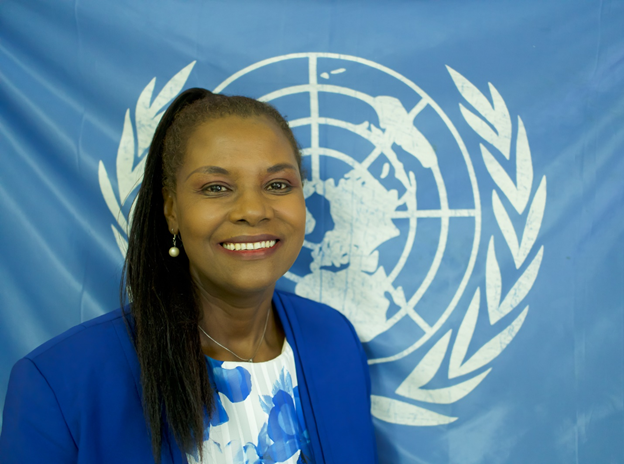By Ndey Sowe
Seraphine Wakana, United Nation (UN) The Gambia Resident Coordinator, said they will work with young people and women to bridge the gender gap and provide more opportunities for growth and development.
“We will work with young people and women to bridge the exclusion and gender gap and provide more opportunities for growth and development. Young people and women must have access to quality education, training, skills building and services to innovate and, in so doing, help them build lives protected from violence, abuse and exploitation,” UN Resident Coordinator Wakana said.
Wakana said this week, the world is celebrating the 76th anniversary of the United Nations and for 76 years, the UN has been working with governments across the world to prevent conflict, restore hope and dignity for the deprived and build a better world for everyone. She said their mission in The Gambia is no different as they work with the government, civil society, private sector, local communities, children, young people and women to support the country’s development aspirations and protect human rights.
The UN resident coordinator said even before the COVID-19 pandemic, The Gambia, like most countries, was already grappling with enormous challenges, including climate change, youth unemployment, irregular migration and increasing inequalities. She said the effects of the pandemic are threatening to further unravel decades of progress to build a more inclusive and equal society for everyone. But she said they have come too far to slow down and their strength and hope for the future lie in their shared vision for a more prosperous nation.
“Fundamentally, at the heart of the work of the United Nations in The Gambia are the rights, welfare and development of young people and women, two groups that represent beacons of hope. Their energy and determination to overcome the numerous challenges they face daily and usher in a new era of hope and prosperity for everyone are the reasons we must remain hopeful for the future.
“Building back better requires sustained efforts to tackle the pandemic, and our best chance is vaccination. The United Nations is leading unprecedented global and multilateral efforts to ensure equitable distribution of COVID-19 vaccines across the world.
“Despite being the smallest country on mainland Africa, The Gambia was among the first five countries on the continent to receive the COVID-19 vaccines via the COVAX facility – a coalition of UN and other agencies working to make vaccines available to all. As a result, more than 12 per cent of the total eligible population in The Gambia has been fully vaccinated, but the road ahead is still long,” she stated.
Wakana therefore encouraged everyone to get vaccinated and called for a step up on national efforts to make vaccines available to those willing to take the jab and encourage the unvaccinated to consider taking the vaccine.
“We must remind everyone that the virus is still with us, cases may still rise and more disruptions to education and economic activities will further stall the country’s recovery efforts. We can minimize these aftershocks and help protect more people from COVID-19 deaths and hospitalizations when we all get vaccinated,” she said.
As with the national effort to curtail the pandemic, she said the United Nations has always supported The Gambia through numerous other challenges to its social and economic development.
“We have always been there to help build a society for every single Gambian, irrespective of faith, gender or economic standing – a society where every child can go to school, where every girl and woman is protected from violence, where the environment is protected, where the economy is strong and inclusive, where jobs are available for all and where migrants, refugees and other vulnerable groups are also protected. In short, no one should be left behind,” she disclosed.
“As The Gambia heads to the polls to vote in the presidential elections in December, the United Nations encourages all actors, including political parties and their leaders, to promote peace during and after the vote. This is a commitment we must all make and hold ourselves accountable to.”





















